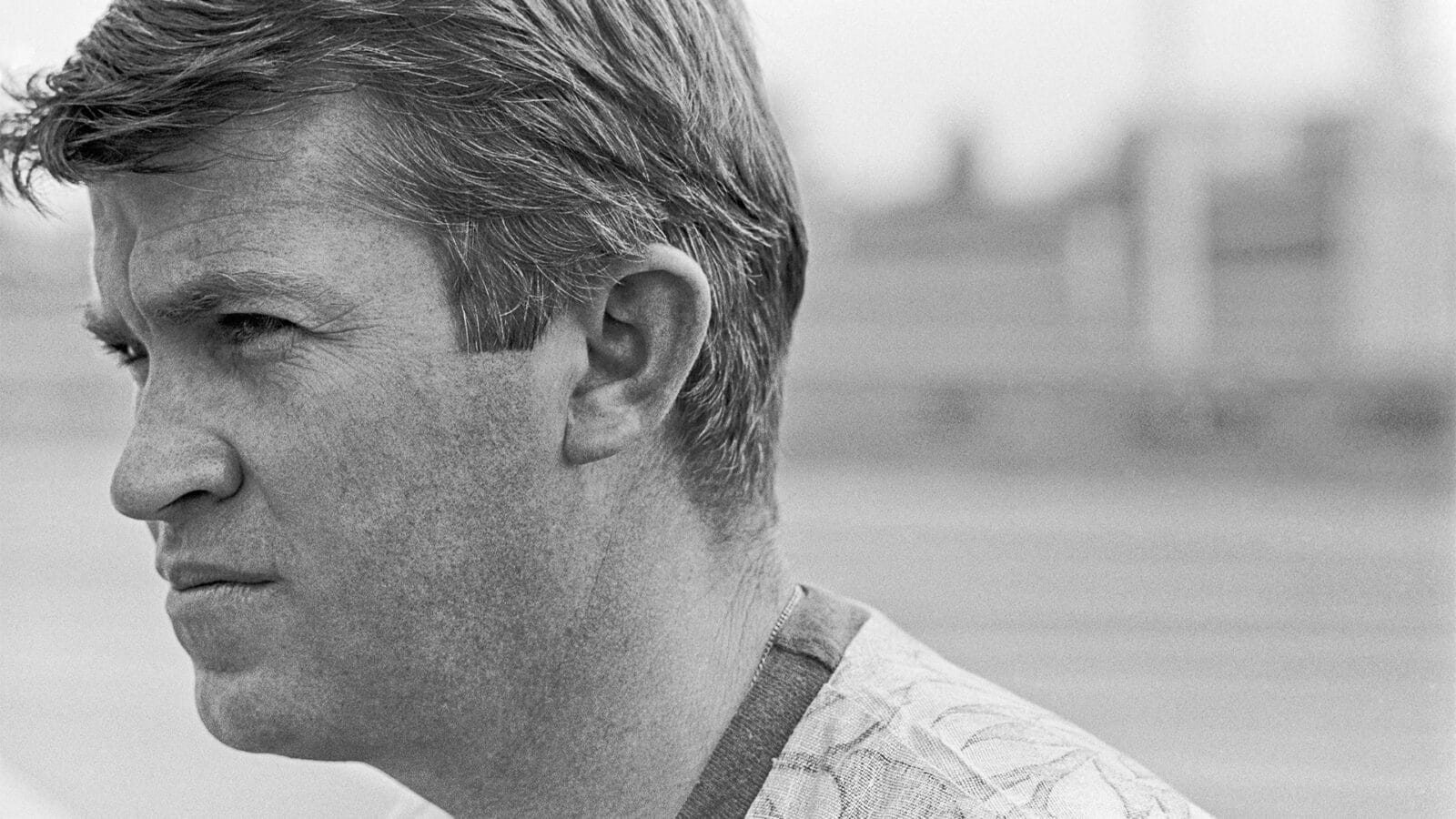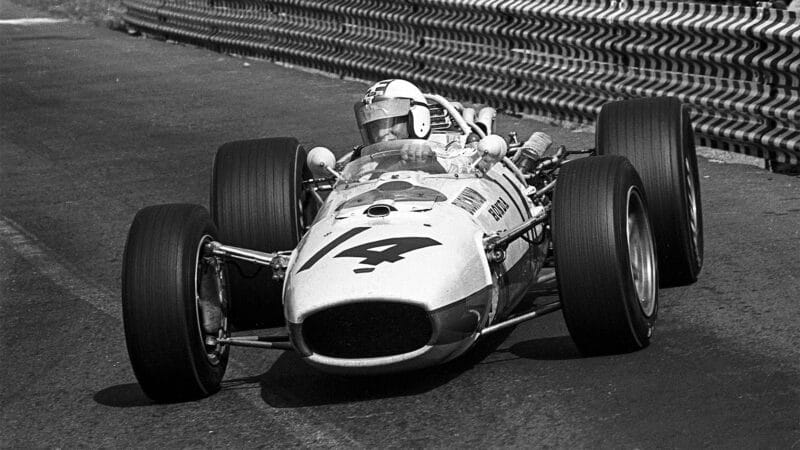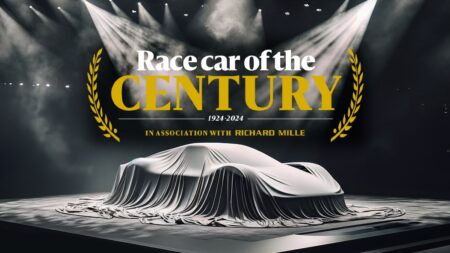Armed with Rene Pellandini’s AC Ace-Bristol he scored well against the faster Porsche Carreras and then switched to a Doane Spencer-prepared Healey and later an MGB for Hollywood Sports Cars (Ginther having previously raced for the équipe). Occasional outings in Max Balchowsky’s Ol’ Yeller brought in more results, as did runs on the ovals in Modifieds.
Soon after signing on with Carroll Shelby, Bucknum was approached by Honda in March ’64. Shortly thereafter he was flown to Tokyo, where he drove the first formula car he’d ever sat in. He would make his F1 debut at the Nürburgring, where his race ended with steering failure at the Karussell! By the following round at Monza he was ninth fastest in qualifying but took off last. By the second tour he had caught and passed four cars, then picked off a few other stragglers before arriving on the main pack. He passed Bandini, Ginther, Brabham, Bonnier and Ireland, all in one lap. Then his brakes failed. By the end of the season he’d shown flashes of real promise. But then Ginther arrived for ‘65 and he was totally eclipsed.
In total Bucknum did just 11 grands prix (the final one being the ’66 Mexican) before returning home to a successful stint in Trans-Am, Champ Cars (he won the ’68 Michigan 250 in a Weinberger Homes Eagle) and sportscars, before gradually fading from the scene. He died in April 92, aged just 56. But the Bucknum names lives on in motor sport through his son Jeff, who made his Indy 500 debut in 2005.



